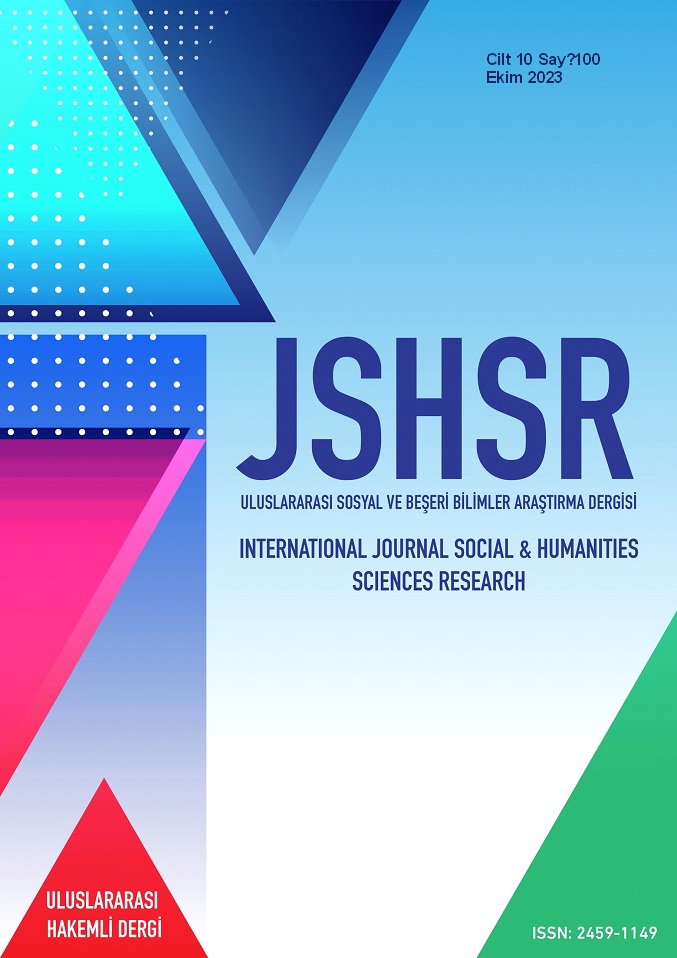Google Pigeon Algorithm In The Academic World And Testing The Algorithm With Local Search Examples
DOI:
https://doi.org/10.5281/zenodo.10045798Keywords:
Google Pigeon algorithm, Local Search, Local SEOAbstract
Internet users use search engines to access the information they are looking for in virtual environments. When a search is performed, the search results that appear on the first page of the screen are usually the websites that receive more attention and visits. Users tend to show less interest in and often do not visit the websites that appear on the second and subsequent pages of search results.
Google, known as the most preferred and largest search engine worldwide, continuously develops new algorithms and updates existing ones to improve search results and make them more user-friendly. One of these algorithms, the Pigeon algorithm, introduces a new approach that prioritizes local businesses and takes into account the user's location in addition to the searched keyword when calculating search results.
The study was conducted by scanning and reviewing scientific studies related to the Pigeon algorithm indexed on Google Scholar between the years 2022 and 2014 when the Pigeon update, the latest algorithm developed by Google for local search, was announced. The study aims to summarize how the academic world views the Pigeon update and also tests the algorithm with various local search examples. This way, the innovations brought by Google's Pigeon algorithm are intended to be clearly presented.
References
Almukhtar, F., Mahmoodd, N. & Kareem, S. (2021). Search engine optimization: A Review. Applied Computer Science, 17(1), 69–79. doi:10.23743/acs-2021-07
Başar, R. (2021). Dijital Dönüşüm Çağında Sağlık Hizmetlerinde Pazarlama. A. Baydaş & F. Yalman (Ed.), Sağlık Sektöründe Uygulanan Güncel Pazarlama Yaklaşımları içinde (s. 111-147). Kriter Yayınevi.
Başar, R. (2023a). Nesnelerin İnterneti (IOT) ile Güncel Yaklaşımlar: İSKİ Akıllı Sayaç Örneği. 5. International Antalya Scientific Research and Innovative Studies Congress, 26-28 Temmuz 2023 / Antalya, 167-177.
Başar, R. (2023b). Site İçi Arama Motoru Optimizasyonunun Web Sitesi Trafiğinde Neden Olduğu Değişimlerin Ölçümlenmesi: Örnek Bir Web Sitesi Analizi. 6. Uluslararası Göbeklitepe Bilimsel Çalışmalar Kongresi, Şanlıurfa, 29-30 Temmuz 2023, 259-270.
Brightlocal Local.com (t.y.). SEO. https://www.brightlocal.com/learn/local-seo/
Chandra, A., Suaib, M., & Beg, R. (2015). Google Search Algorithm updates against web spam. Informatics Engineering International Journal, 3(1), 1-10.
Dilmen, N. E. (2020). Yanınızdan Hiç Ayrılmayan Markalar: Konum Tabanlı Pazarlama.
C. Tokgöz Şahoğlu & B. Aydoğan (Ed.), Konumsal Medya Dijital Çağda Mekân Üzerine Disiplinlerarası Tartışmalar içinde (ss. 93-112). Siyasal Kitabevi.
Durica, M., & Svabova, L. (2015). Improvement of company marketing strategy based on Google search results analysis. Procedia Economics and Finance, 26, 454-460.
Farrell, J. & Weideman, M. (2014). Using past search engine algorithm updates to predict future trends. Working Paper, Cape Peninsula University of Technology, Cape Town. Available online: http://www.web-visibility.co.za/website-visibility-abstracts-seo.htm
Gedik, Y. (2022). Arama motoru optimizasyonu (SEO): Avantajları, zorlukları ve stratejileri üzerine kavramsal bir değerlendirme. Uluslararası Sosyal Bilimler ve Eğitim Dergisi, 4(6), 145-176.
Google My Business. Erişim Adresi: https://www.google.com/business/?gmbsrc=ww-ww-et%20gs-z-gmb-szh~pro-zu
Gudivada, V. N., Rao, D., & Paris, J. (2015). Understanding search-engine optimization. Computer, 48(10), 43-52.
Harnish, B. (2018). What Is Local SEO & Why Local Search Is Important. https://mppolytechnic.ac.in/mp-staff/notes_upload_photo/CS332LocalizedSEO.pdf
Jin, L. (2016). New Techniques Of Search Engine Optimization in Web-Development - Case Runfa. Bachelor’s Thesis School of Business and Culture Degree Programme in Business Information Technology, Bachelor of Business Administration.
Joshi, M.A. & Patel, P. (2018). Google Page Rank Algorithm and It’s Updates. In Proceedings of the International Conference on Emerging Trends in Science, Engineering and Management, ICETSEM-2018, 6-16.
Kliman-Silver, C., Hannak, A., Lazer, D., Wilson, C., & Mislove, A. (2015). Location, location, location: The impact of geolocation on web search personalization. In Proceedings of the 2015 internet measurement conference, 121-127.
Mittal, M. K., Kirar, N. & Meena, J. (2018). Implementation of Search Engine Optimization : Through White Hat Techniques. International Conference on Advances in Computing, Communication Control and Networking (ICACCCN2018), 674-678.
Moz.com, Google Pigeon. Erişim Adresi: https://moz.com/learn/seo/google-pigeon
Schwartz B. (2016). Google has confirmed it is removing toolbar PageRank. https://searchengineland.com/ google-has-confirmed-they-areremoving-toolbar-pagerank-244230
Support Google Business. (t.y.). https://support.google.com/business/answer/7091?hl=en#zippy=%2 Center-complete-data%2Cverify-your-locations%2Cprominence%2Crelevance%2Cdistance
Tevetoğlu, M. & Çolak, B. (2021). Dijital reklamcılığın yol açtığı hukuki sorunlar ve çözüm önerileri. Maltepe Üniversitesi Hukuk Fakültesi Dergisi, (1), 43-86.
Vuran, E. G. (2019). Arama Motoru Optimizasyonu. Yüksek Lisans Tezi, Dokuz Eylül Üniversitesi.
Downloads
Published
How to Cite
Issue
Section
License
Copyright (c) 2023 INTERNATIONAL JOURNAL OF SOCIAL HUMANITIES SCIENCES RESEARCH

This work is licensed under a Creative Commons Attribution 4.0 International License.


